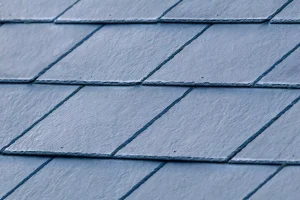
Home safety and security systems do more than alert you of break-ins; they can detect fire, carbon monoxide poisoning, floods or water damage as well.
Some home alarm systems offer professional monitoring while others allow self-monitoring; the difference typically rests on price.
Liu suggests her clients tailor their storage system according to where they store valuables such as art, cars, or wine.
Safety
People looking for new homes will initially focus on ensuring its safety by conducting thorough investigations of crime rates, local fire and police departments and whether or not the community is known for being suitable for families with young children.
Home security systems typically consist of door and window sensors connected to a central hub that alert you or sound an alarm in case of an intrusion or break-in attempt. Some systems also provide monitoring services that notify authorities in case of an attempt.
Some systems provide homeowners with added peace of mind by monitoring for fire and carbon monoxide poisoning, giving them extra peace of mind even when away from home. Furthermore, certain insurance companies offer reduced premiums to homes equipped with security systems installed – among them Frontpoint as a leading DIY home security system that offers 24/7 professional monitoring with no long-term contracts and customizable smartphone notifications.
Peace of Mind
Home security systems help to create an atmosphere of safety and comfort within a house for its occupants, just as HVAC and electric networks do. Home security systems can reduce stress for people living alone or with older family members while decreasing burglary risk.
Some systems provide professional monitoring that can alert authorities to any unusual activity. Others feature video doorbells and flood lights to deter criminals as well as panic buttons that connect directly to emergency services when someone is in imminent danger.
Modern systems can now be integrated with smart devices and controlled remotely using mobile apps, making them even more convenient than before. You can check in on cameras remotely from across the street or halfway around the world; lock doors remotely when doors close at dusk; turn lights on as needed at dusk – this feature is especially beneficial if caring for elderly relatives who need assistance with daily activities or are living with chronic conditions that require constant monitoring.
Home Automation
Home automation or domotics refers to any system used to remotely monitor and control household devices such as lighting, entertainment systems, climate control and appliances. Security systems may also be integrated with home automation for enhanced comfort and convenience.
Modern systems differ significantly from their predecessors by being wireless and user-friendly, making installation much simpler for DIY homeowners themselves. Entry sensors consist of two parts; magnet and sensor, which work together to generate a magnetic field when close together; any disruption disrupting this field triggers a signal to its base station that sends alarm or notifies authorities.
Home security systems that offer seamless integration should work seamlessly with other smart devices, like Amazon Alexa or Google Home voice-activated home assistants, so you can control your system simply using voice command.
Monitoring
Home security systems serve a vital function, alerting owners of potential danger from burglary, fire, flood and environmental disasters. Many systems monitor these threats via sensors connected by wire or radio frequencies to a hub which sends alarms directly to homeowners, monitoring companies or emergency responders as appropriate.
Hubs can come in various forms – be they physical control panels with touchpad and PIN programming capabilities or smartphone apps; some systems also include keychain-mounted remote controls that work similarly to car fobs.
Home security systems vary considerably in their features and prices. Some provide 24/7 professional monitoring at a monthly fee while others allow customers to self-monitor via mobile apps without long-term contracts or alerts from central stations if an emergency arises; many even feature home automation features. When selecting your system, take into consideration your lifestyle and living arrangement – for instance homeowners often remain put longer than renters so choosing an easily expandable or portable system might make more sense in such instances.




